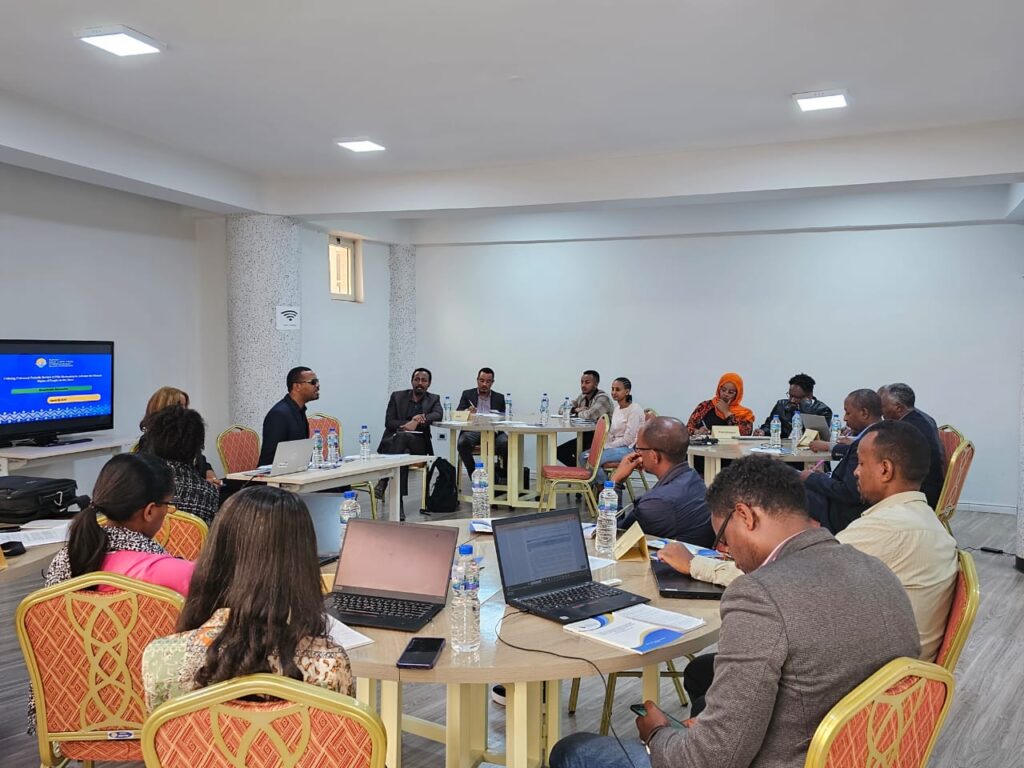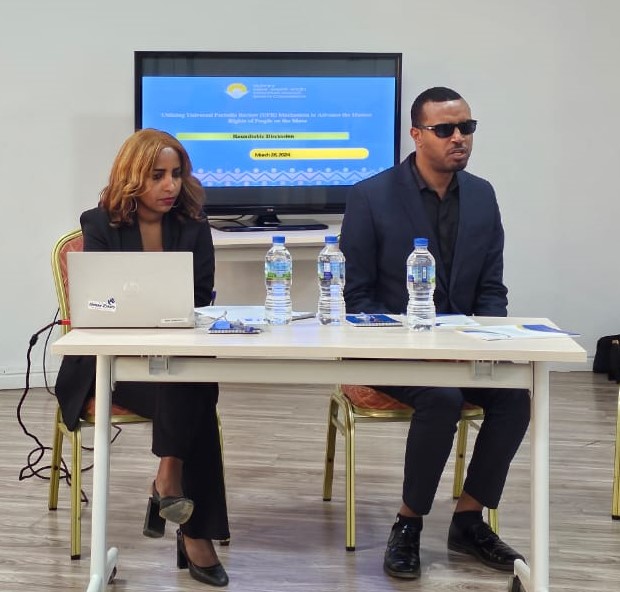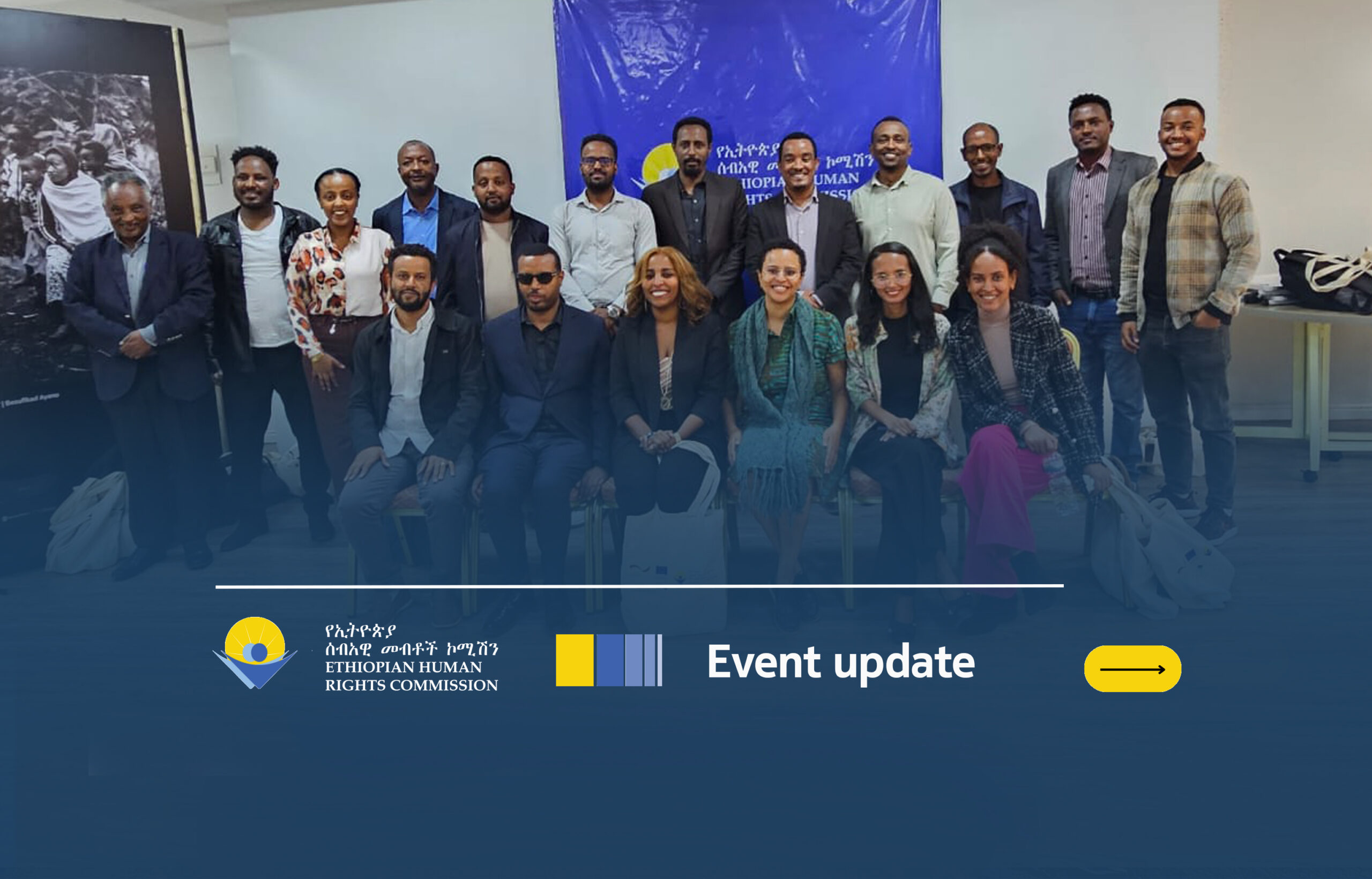The Ethiopian Human Rights Commission (EHRC) held a half-day roundtable discussion on March 28, 2024, in Addis Ababa. The event aimed to harness the upcoming 4th Cycle Universal Periodic Review (UPR) of Ethiopia, scheduled for November 2024 to advance the rights people on the move.
The roundtable brought together key stakeholders from various United Nations (UN) agencies including International Labour Organization (ILO), International Organization of Migration (IOM), United Nations High Commissioner for Refugees (UNHCR). Additionally, representative from international organizations such as Save the Children International participated in the discussions. Through collaborative dialogue, participants assessed progress made in implementing recommendations from Ethiopia’s 3rd Cycle UPR concerning refugees, internally displaced persons (IDPs) and migrants.
While recognizing UPR as primarily a State-to-State review mechanism, the discussions emphasized its potential for a broader human rights engagement. The review process offers strategic opportunity to National Human Rights Institutions (NHRIs), UN Agencies and Civil Society Organizations to prepare parallel submissions and voice their concern on various human rights issues. Participants underlined the UPR’s unique opportunity to assess the progress made by the government of Ethiopia against a broad range of legal standards including the UN Charter, the Universal Declaration of Human Rights, human rights treaties ratified by the State, voluntary pledges and commitments by the State and applicable international humanitarian law.

The roundtable discussion presented EHRC’s approach in formulating its 4th cycle UPR submission, drawing upon insights gleaned from the 3rd cycle UPR recommendations. The need for sustained advocacy efforts based on UPR recommendations was also stressed.
In the context of refugees, it was underscored that challenges persist with refugee registration, status determination and camp security. Additionally, participants voiced concerns regarding the non-adoption of the draft national migration policy and the non-ratification of key legal instruments, including the International Convention on the Protection of the Rights of All Migrant Workers and Members of Their Families (ICMW) and several ILO Conventions.

Considering Ethiopia’s status as a host nation for a large refugee and IDP population and a major source country for migrant workers, the discussion reiterated the need for a unified stakeholder effort to use the UPR process to address the diverse human rights challenges faced by people on the move and emphasized the need for increased collaboration and enhance ongoing efforts to ensure the implementation of UPR recommendations between review cycles.
Enguday Meskele, EHRC’s Director of Refugees, IDPs and Migrants’ Rights Department, outlined the progress on implementing the 3rd Cycle UPR recommendations. While commending the ratification of the African Union Convention for the Protection and Assistance of Internally Displaced Persons in Africa (also known as the Kampala Convention), she stressed the need for an implementing proclamation and a designated government body for the protection IDPs.
